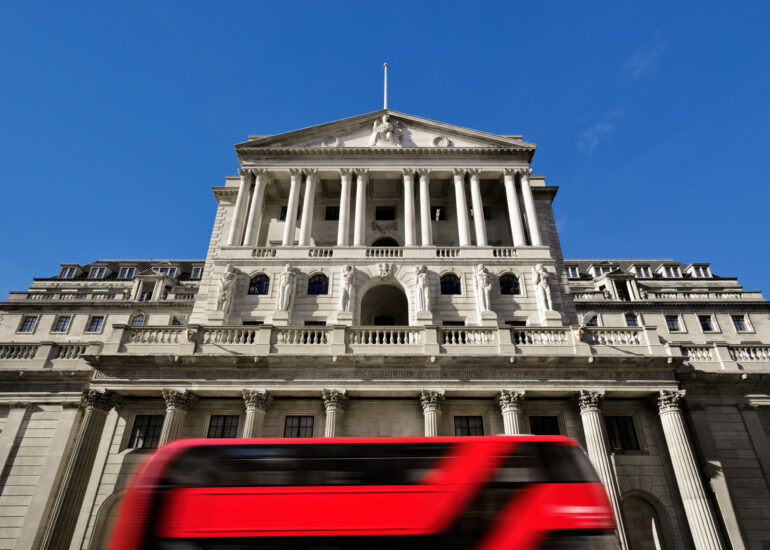Since May 2020, people have been more likely to say it would be good for them personally if interest rates went up, but now it has happened, this has been overtaken by the number saying it would be good if rates fell – at 30% vs 27%, according to a poll from the Bank of England.
The Bank of England/Ipsos inflation expectation figures found that 74% of people expect interest rates to rise over the next 12 months, with 33% of people saying they will rise a lot.
In November, when asked to estimate inflation, on average people said it was 9.2% (in October it was 11.1%).
A quarter of people (26%) think inflation is below 5%, and 10% have no idea.
Sarah Coles, senior personal finance analyst, Hargreaves Lansdown, said: “Widespread enthusiasm for higher interest rates has dried up in the face of the horrible reality. Rock bottom rates since the onset of the pandemic frustrated savers, and meant that more people have been hoping that rates would rise. However, now they’re on the up, people are starting to realise that it’s not so simple.
“Since the pandemic, when rates sunk to historic lows, more people have wanted them to rise than the number hoping they would fall. This reflects the fact that our research shows that almost three quarters of us have savings (74%), whereas less than a third have a mortgage (28%). People took one look at the rock bottom 0.01% being offered by our high street savings accounts, and decided we needed rates to rise.
“For a year now, rates have been on the up. While enthusiasm for more rate rises endured to August, when 31% of people said it would be better for them if rates kept rising, the dramatic fallout from the mini-budget made people rethink their approach entirely.
“While Bank of England rates have risen, mortgage rates spiked far further – especially in October – which spooked an awful lot of people. The pain of higher mortgage rates is likely to persuade anyone on a tracker rate, or due to remortgage onto a far higher fixed rate, that lower rates would be ideal.
“Meanwhile, those who own their home outright who are planning to use the equity in their property have realised that if higher mortgage rates depress prices, it will have a knock-on impact on their retirement plans.
“Then, of course, the damage it has caused stockmarket investments, including bonds, is likely to have hit people’s pension pots, making them realise that a few extra percentage points on their savings has come at a cost.
“Eventually, people may get what they hope for. While the market is pricing in that rates will keep climbing to somewhere around 4.5% or 4.75% next year, they are then likely to fall back, as the recession weighs more heavily on the economy. It means we may not get the major interest rate rises predicted by 33% of people, and the rises we do get, should be unwound as we go through the next couple of years. Of course, by then, there’s every chance more people will be crossing their fingers for rate rises again.
“Meanwhile, we’re continuing to underestimate inflation, and while we’ve been doing so consistently since August 2021, the fact that we thought inflation was around 9.2% in November when it is expected to come in at over 10% raises the risk that people aren’t keeping track of price rises. At the moment, the pace of price rises means it’s vital to keep an eye on them, to be sure we can cover the cost of the essentials. There’s a worry that millions of people are still crossing their fingers and hoping that the money lasts to the end of the month.”




